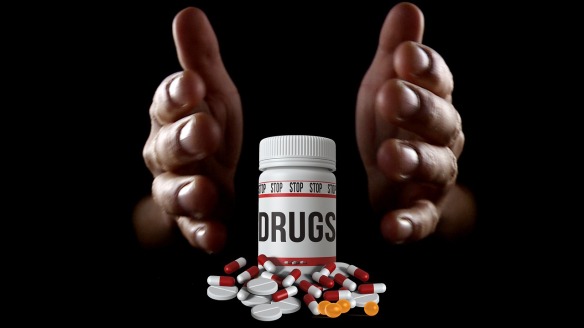By David Joel Miller, MS, Licensed Therapist & Licensed Counselor.
Why do so many people have both Substance Use Disorders and a Mental Illness?
Having multiple problems is so common today that we are surprised when someone shows up looking for help for one and only one problem. People who have a mental illness often abuse drugs or alcohol. People with a Substance abuse disorder frequently have one or more mental illnesses.
The overlap is so common we have come to expect that someone who has one life problem is at risk to develop another. When people have more than one problem it is hard to recover from one unless the other gets treated.
The old method was to ask the mentally ill to give up drugs and alcohol, stay clean 30 days, and then they could get help for their mental illness. Substance abuse clients were told to go get their depression or anxiety treated and then come back for drug treatment. The result was people with multiple problems who were ping-ponged back and forth between providers and many never got the help they needed.
The newer approach is to treat multiple problems all at once and improvements in one life area help recovery in other areas. So why are mental health problems so very common among those with substance use disorders? Here are some of those reasons.
A prior Mental illness puts you at risk to abuse substances.
Having a mental health problem puts you at risk to use substances to cope with your issue. Someone with anxiety finds that alcohol or drugs help them get past the anxiety and be more outgoing. The more of a drug they do the better they feel. Before long this use is out of control and becomes first a habit and then an addiction.
A person with Post Traumatic Stress Disorder will find that chemicals, alcohol or drugs, numb the symptom. Some people drink to forget the depression. All of these uses of chemicals to cope with a mental health issue could fit under the idea of self-medication. Using drugs and alcohol can help the person cope for a while, but since this is an unsafe coping strategy eventually the person’s solution becomes a second problem.
Common stressors and environments increase risks for both.
Living in poor neighborhoods increases the risk that you will have life difficulties. More crime more mental health issues and more drug and alcohol abuse in your neighborhood. Poverty is depressing and substances are a way to cope, temporarily, with poverty and unemployment.
Substances change your brain and induce mental health disorders.
People try drugs for all sorts of reasons. Many people have had the experience of a hangover. After that experience, a common treatment for the hangover is the hair of the dog that bit you, more alcohol.
Substance use progresses from experimentation to habitual use. The more of a drug someone uses the more their brain chemistry changes. At some point, not a planned occurrence, this habit becomes a mental need, a psychological addiction to the substance. Eventually, this progresses to a psychical addiction, a chemical dependency.
Excessive substance abuse results in long-term changes in the functioning of the brain. Depression, anxiety, or even psychosis may develop as a result of using, being under the influence, and withdrawing from substances.
Life experiences from either increase the risk of the other problem.
People with serious mental illnesses are more likely to be the victim of crime than the perpetrator. Being mentally ill makes you vulnerable. Having a mental illness increases the risk that you will be unemployed, have a psychical illness, and die at an earlier age. All of these are risk factors for substance abuse.
The life experiences that drug users have, poor neighborhoods, crime, and poverty are all risk factors for poor mental health. The drug-using experience increases the risk of traumatic experiences. Rapes, robberies, assaults, and incarcerations all can accompany substance use disorders.
The experience of having a substance use disorder increases the risk of a mental illness. Trying to live with a mental illness increases the risk that you will abuse substances.
Giving up a drug of choice is painful.
For most substance abusers their drug of choice becomes their best friend. Women come and go but Sherry is always waiting in the bottle for you. A man may leave you but Jose and Jack will always be in the bottle when you need them.
Crystal is always ready for your next date with the pipe.
People become closer to their drug of choice than to their family or friends. Giving up drugs or alcohol means losing that best friend. This loss of a friend and support system can leave the substance user alone with no coping mechanism and at high risk to develop a mental health problem or return to active use.
Hope that these 5 ideas will help to explain why having both a substance use disorder and a mental illness at the same time is so very common. If you or someone you know has one or both of these issues help is available. If that person has both conditions, look for a treatment provider who is comfortable with working on both issues at the
Staying connected with David Joel Miller
Seven David Joel Miller Books are available now!
My newest book is now available. It was my opportunity to try on a new genre. I’ve been working on this book for several years, but now seem like the right time to publish it.
Story Bureau is a thrilling Dystopian Post-Apocalyptic adventure in the Surviving the Apocalypse series.
Baldwin struggles to survive life in a post-apocalyptic world where the government controls everything.
As society collapses and his family gets plunged into poverty, Baldwin takes a job in the capital city, working for a government agency called the Story Bureau. He discovers the Story Bureau is not a benign news outlet but a sinister government plot to manipulate society.
Bumps on the Road of Life. Whether you struggle with anxiety, depression, low motivation, or addiction, you can recover. Bumps on the Road of Life is the story of how people get off track and how to get your life out of the ditch.
Dark Family Secrets: Doris wants to get her life back, but small-town prejudice could shatter her dreams.
Casino Robbery Arthur Mitchell escapes the trauma of watching his girlfriend die. But the killers know he’s a witness and want him dead.
Planned Accidents The second Arthur Mitchell and Plutus mystery.
Letters from the Dead: The third in the Arthur Mitchell mystery series.
What would you do if you found a letter to a detective describing a crime and you knew the writer and detective were dead, and you could be next?
Sasquatch. Three things about us, you should know. One, we have seen the past. Two, we’re trapped there. Three, I don’t know if we’ll ever get back to our own time.
For these and my upcoming books; please visit my Author Page – David Joel Miller
Want the latest blog posts as they publish? Subscribe to this blog.
For videos, see: Counselorssoapbox YouTube Video Channel










